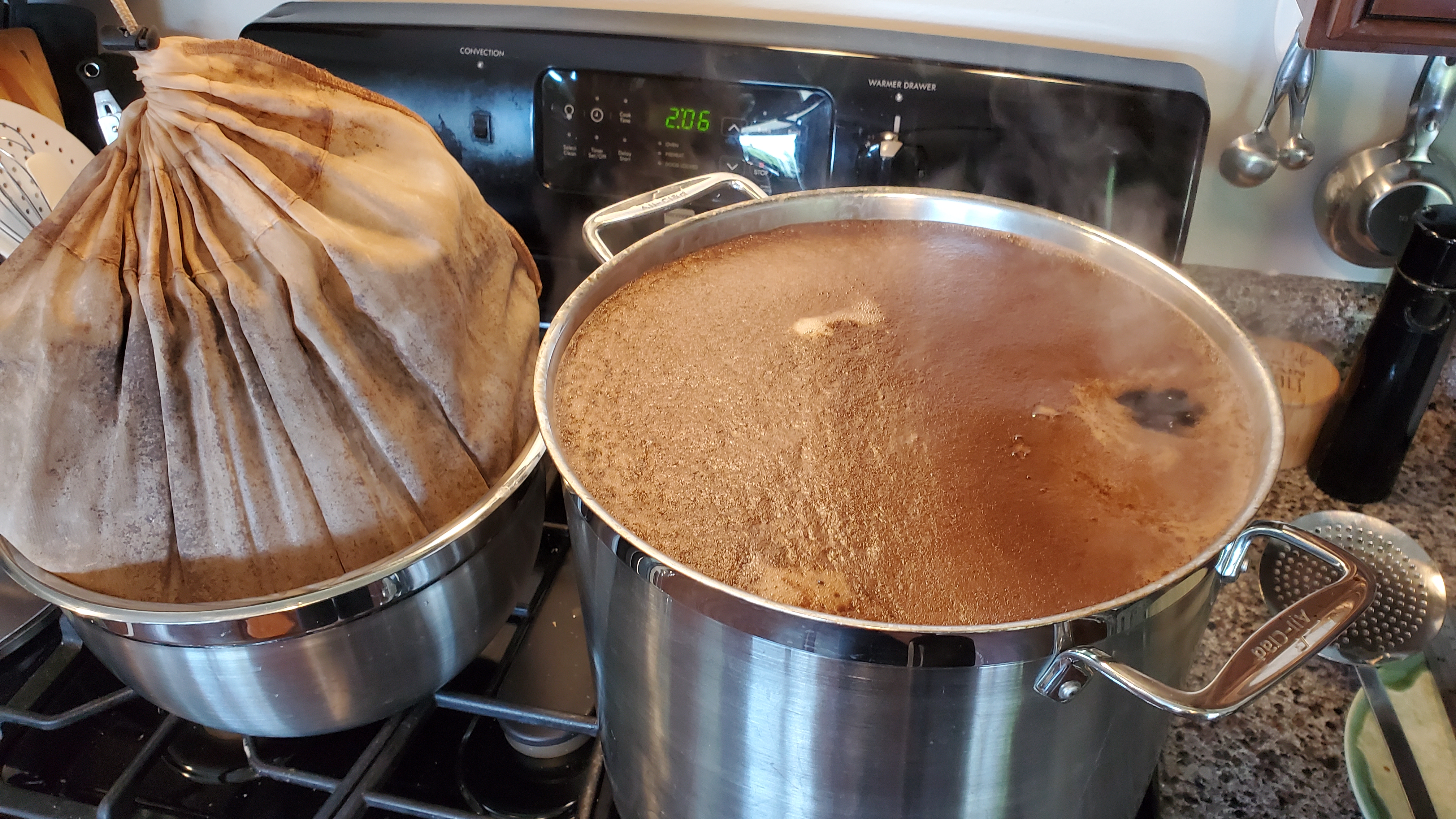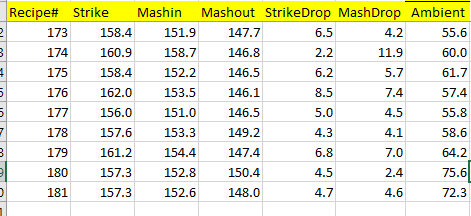Yeast Farmer
Well-Known Member
- Joined
- Jun 7, 2021
- Messages
- 49
- Reaction score
- 69
I'm trying to figure out the game plan for my first all-grain brew. It will be the first beer I've made since doing extract kits in 2013. I'm just waiting for some ingredients and paraphernalia to come in the mail. This is the recipe and procedure, as I've pieced it together so far. Let me know if I am on the right track. The water volumes are what I'm mostly concerned about.
The recipe is a basic cream ale, 5 gallon batch. Nothing fancy at all, just a starting point to see what I want to change in the future.
-8 pounds Viking pale ale malt
-2 pounds flaked corn
-.75 oz Helga hops, 60 mins
-.75 oz Helga hops, flameout (I chose Helga solely because I got a pound of it for $5.99, it's an Australian Hallertau descendant.)
-Nottingham ale yeast (Because I already have some, and it's almost lager-like, which should work well for a somewhat hybrid ale/lager style.)
This is the mash procedure as I've worked it out from reading and looking at some calculators. I have an 8.5 gallon kettle.
-3.5 gallons of strike water at 160 degrees, mash at about 153 degrees for 1 hour
-pull out and drain the grain bag, batch sparge in a bucket with another 3.5 gallons of water at 170 degrees for mash-out.
Theoretically, this gives me 6.5 gallons of pre-boil wort, and 5 gallons in the fermenter, according to BIAB Calculator.
I based my water volumes on BIAB Calculator recommending 6.95 gallons (I'll call it 7) of water, but apparently assuming no sparge. I'd like to try the batch sparge in a bucket, since it seems like an easy way to be a little more efficient. So I split the water in half, between the mash and sparge. That works out to 1.4 quarts of water per pound of grain for the mash.
Does that look about right?
The recipe is a basic cream ale, 5 gallon batch. Nothing fancy at all, just a starting point to see what I want to change in the future.
-8 pounds Viking pale ale malt
-2 pounds flaked corn
-.75 oz Helga hops, 60 mins
-.75 oz Helga hops, flameout (I chose Helga solely because I got a pound of it for $5.99, it's an Australian Hallertau descendant.)
-Nottingham ale yeast (Because I already have some, and it's almost lager-like, which should work well for a somewhat hybrid ale/lager style.)
This is the mash procedure as I've worked it out from reading and looking at some calculators. I have an 8.5 gallon kettle.
-3.5 gallons of strike water at 160 degrees, mash at about 153 degrees for 1 hour
-pull out and drain the grain bag, batch sparge in a bucket with another 3.5 gallons of water at 170 degrees for mash-out.
Theoretically, this gives me 6.5 gallons of pre-boil wort, and 5 gallons in the fermenter, according to BIAB Calculator.
I based my water volumes on BIAB Calculator recommending 6.95 gallons (I'll call it 7) of water, but apparently assuming no sparge. I'd like to try the batch sparge in a bucket, since it seems like an easy way to be a little more efficient. So I split the water in half, between the mash and sparge. That works out to 1.4 quarts of water per pound of grain for the mash.
Does that look about right?
























![Craft A Brew - Safale BE-256 Yeast - Fermentis - Belgian Ale Dry Yeast - For Belgian & Strong Ales - Ingredients for Home Brewing - Beer Making Supplies - [3 Pack]](https://m.media-amazon.com/images/I/51bcKEwQmWL._SL500_.jpg)




































